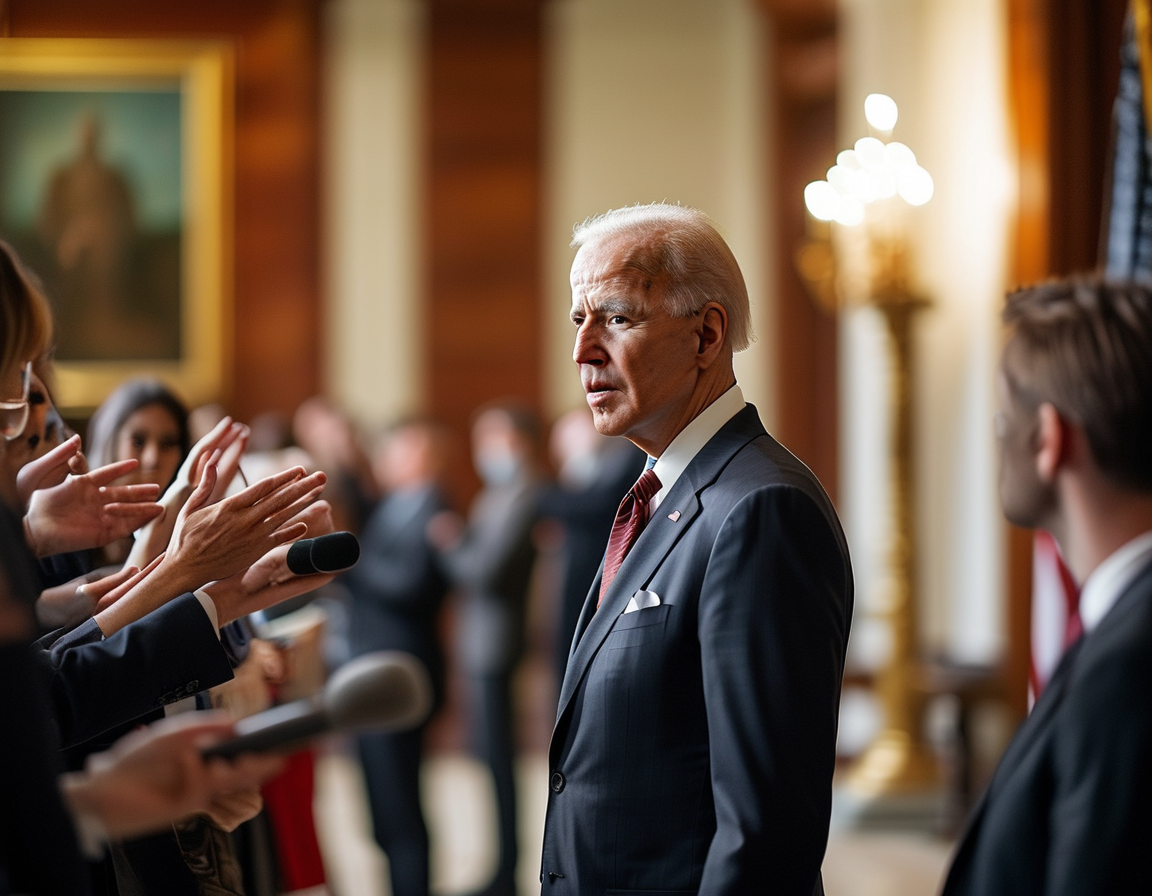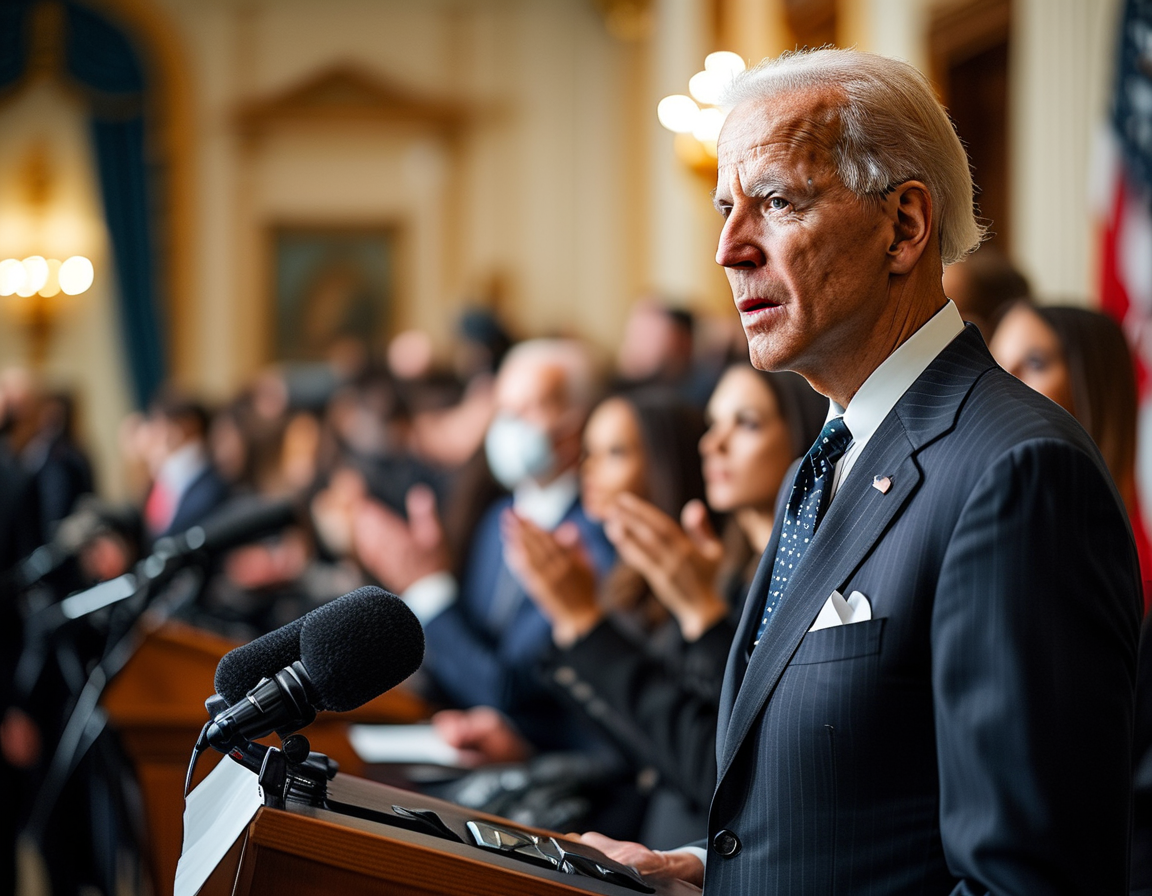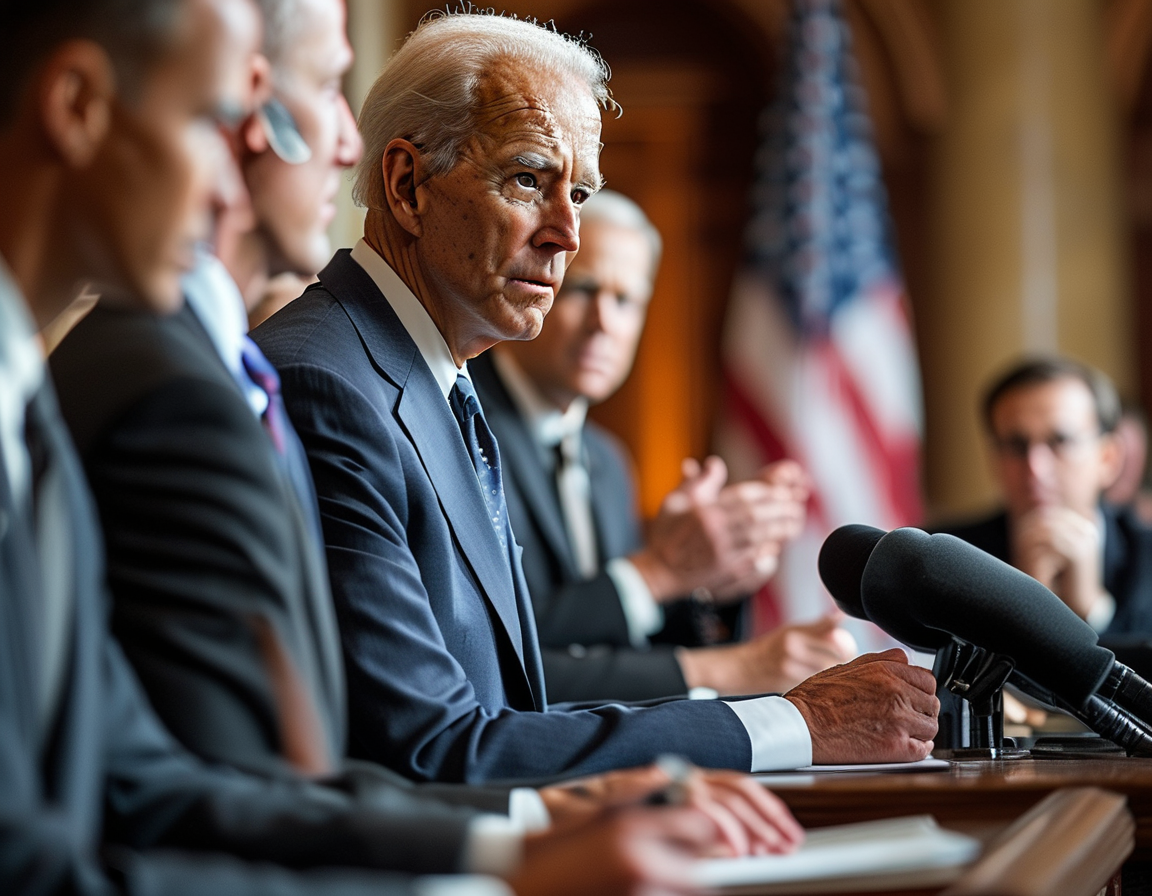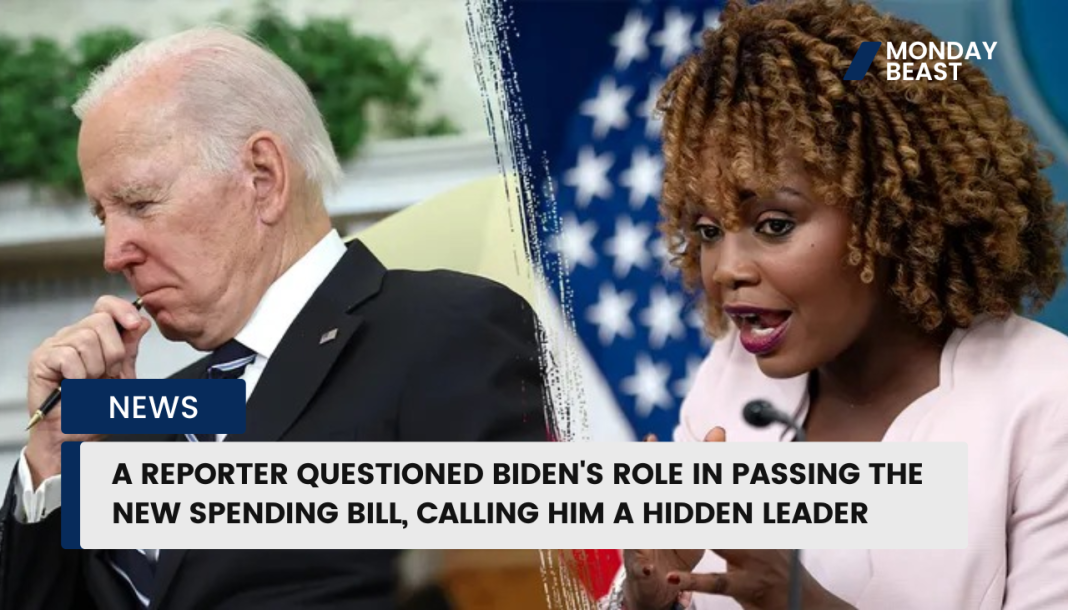The looming government shutdown has cast a shadow over Washington. President Biden has remained conspicuously silent. This raises questions among concerned citizens. Why hasn’t he addressed Americans directly?
In a recent press briefing, White House press secretary Karine Jean-Pierre faced a barrage of questions. Reporters wanted answers about the President’s absence from public discussions. The stakes are high as millions of federal employees face an uncertain holiday season. They deserve clarity.

Despite the pressure, Jean-Pierre deftly deflected inquiries. She targeted Republican leadership, citing their influence in the ongoing deadlock. She mentioned former President Trump, House Speaker Mike Johnson, and even billionaires like Elon Musk as architects of the chaos.
Jean-Pierre emphasized that it is Republicans who have created this mess. She pointed out the political maneuvers that have derailed what could have been a bipartisan agreement. But does shifting blame address the crux of the matter?
As the press urged her for more details, Jean-Pierre maintained an unwavering stance. She continued to highlight Biden’s strategic approach. It’s not the first time Congress has been at an impasse.

The President has been dialing up his contacts. He has chatted with Senate Majority Leader Chuck Schumer and House Minority Leader Hakeem Jeffries. But there’s a glaring absence of communication with House Republicans. Can negotiations truly succeed without all parties engaged?
Some might remember the last shutdown. It lasted for 35 days and left countless Americans feeling the brunt. Interruption of services can ripple through the economy. Essential services go unattended and public morale falters.
The stakes are high with the national debt now exceeding $36 trillion. Sounds alarming, right? It is. Yet, the White House continues to highlight the need for bipartisanship. Jean-Pierre reiterated that Republicans have let both Congress and the American people down.

Critics say it’s rich for Jean-Pierre to deflect blame onto conservative billionaires. Musk’s commentary on the spending bill has fueled the fire. Was his stance helpful or harmful in negotiations?
Musk calls for accountability, demanding those endorsing larger bills be ousted. His influence raises eyebrows. Are we witnessing a shift in political allegiance molded by powerful business figures?
The fabric of our government seems frayed. Pressing questions linger: Will Biden break his silence? Will Republicans step away from their billionaire allegiances? The American public is left to ponder the future amidst this deadlock.
Jean-Pierre noted that a government shutdown could hinder the next presidential transition. This adds another layer of urgency to the already critical narrative. Can we afford this level of dysfunction?
Meanwhile, House Republicans claim they have a plan. House Majority Leader Steve Scalise affirmed confidence in avoiding a shutdown. Their words seem too good to be true given recent events.
Rep. Stephanie Bice suggests a collaborative approach could save the day. Yet, history tells us compromises are hard to come by. What happens when self-interest trumps collective responsibility?
In this convoluted political landscape, one thing is clear. Communication is vital. The absence of direct dialogue from Biden is troubling but not unprecedented. He often treads carefully once controversy brews.
As Americans brace for uncertainty, we must ask ourselves. How can leaders build trust with the people they serve? In a moment where unity could shine, discord threatens to overshadow needed progress.




